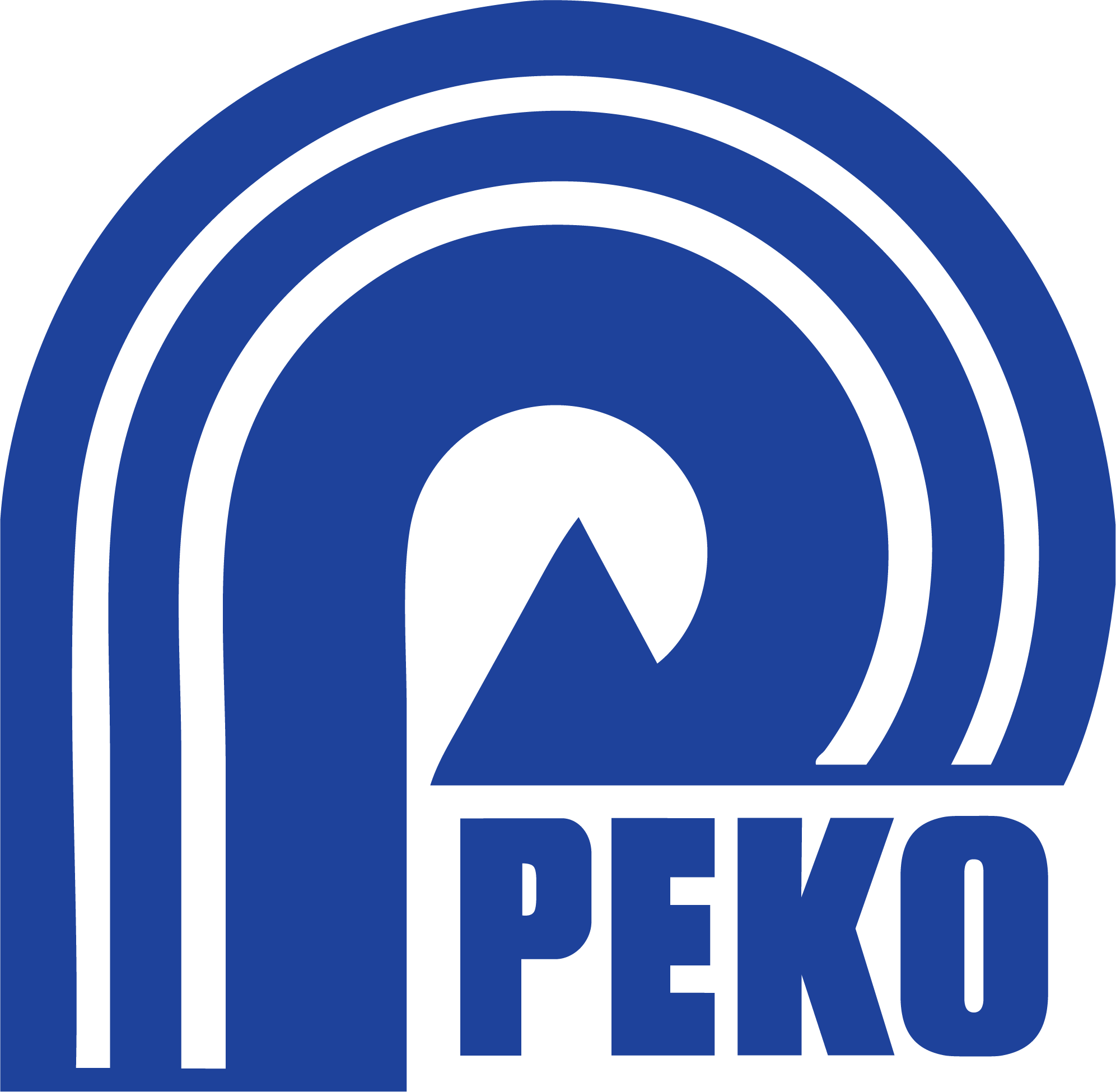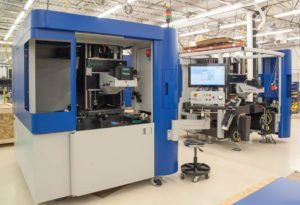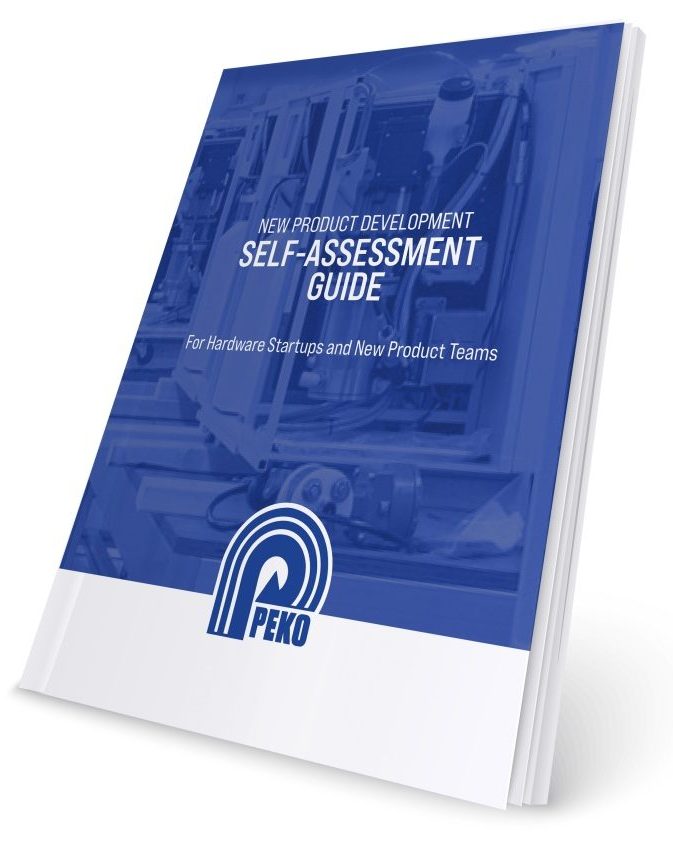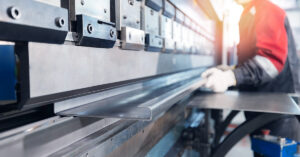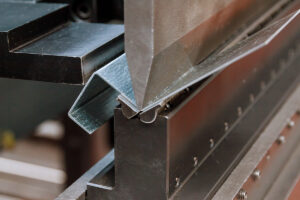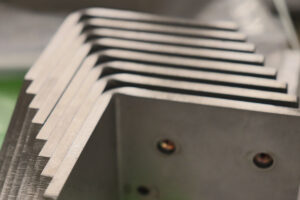As an OEM with your own in-house manufacturing facility, you may often find yourself in the market for new production equipment or custom machinery of some sort.
Before you go buy another off-the-shelf standard machine replacement or a “good enough” piece of large, expensive equipment for your manufacturing or production floor, it is important to take a moment to think if there may be a better alternative.
After all, you are running a business here, and you are going to be investing a large chunk of your hard-earned money into this.
Making the Case for Custom Machinery
There is always room for improvement, and odds are that your manufacturing processes can be optimized in one area or another. The importance of this cannot be forgotten, especially when you are about to make the decision to spend big money on a capital equipment purchase.
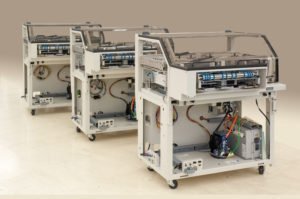
When evaluating your current situation, see if there are any areas in your manufacturing and production departments that can be improved upon. You may not even realize, but a custom-designed machine may be just the answer to the problems arising in your operations.
A custom-designed machine can prove to be beneficial to your business in a number of ways, such as higher quality products, improved safety levels, fewer repetitive tasks, reduced number of manufacturing steps/processes, minimal turnaround time, less time doing maintenance and repairs, lower operating costs, and improved versatility and adaptability in your operations.
Situations That Call for a Custom Machine Build
More times than not, manufacturers don’t consider the option of purchasing new machinery until their existing machines break down and stop working. But overlooking your capital equipment is a mistake that should be avoided at all costs because these assets are responsible for a very important function in your business: the manufacturing and assembling of your final product.
A survey conducted by Atomik Research revealed that a shocking 52% of manufacturers rely on outdated equipment and 38% of manufacturers relying on assets that are broken or unusable.
At the end of the day, your manufacturing equipment and machinery are essentially the backbone of your business. Updating and optimizing your machinery serves as a huge window of opportunity for improved efficiency and productivity and scaling up your operations.
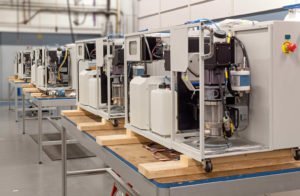
Many situations call for new, custom-designed machinery that is beyond the occurrence of broken and unusable machines. Perhaps you changed or updated the designs of components in the final product you produce, and you are unable to incorporate the functionality required by the new design into the standard machinery and equipment already at your disposal. Or it could be that you’re experiencing too much downtime due to broken and outdated equipment.
Maybe the consistency and quality of your final product have been negatively impacted as a result of multi-step machining processes and human error in manual operations. Or maybe you are simply trying to be proactive to help your company achieve improved efficiency and work process optimization. Whatever the case, a custom-designed machine is a viable option and is quite often considered to be the best and only option for many OEMs.
Is Custom Machinery Right for Your Business?
This is the time to start asking yourself the hard question, “is custom machinery right for me?”
While custom machinery sounds like it has all the bells and whistles you could possibly ask for, it is not the ideal solution for everyone. For some OEMs, a standard, off-the-shelf machine may work perfectly for the product you are producing. If this is the case, then there isn’t much reason to invest your time and money in contracting a custom machine builder. In other instances, like those discussed above, a custom machine is the answer.
Ask yourself these questions to evaluate whether a custom-designed machine is right for you:
- Is there an existing machine that can meet your needs? Custom machinery and equipment are a great option, but only if your project actually requires it.
- When was the last time your machines were upgraded? Many well-built machines are dated and can’t perform to the high standard of today’s machinery.
- Do your machines reach optimum output? Custom machinery could be the key to increasing production output and profit margins.
- Do you frequently spend money on machine repairs? The updated technology used in custom-designed machines reduces the risk of equipment malfunction.
- Do your current machines have the capacity to produce a new product? Standard machinery is often difficult to retrofit to produce new products.
- Could your valuable employees be spending time on something more fulfilling than operating machines? Custom machines can simplify daily processes, freeing up employees for more fulfilling work.
Finding A Custom Machine Builder for Your Project
There are certain decision criteria you should keep in mind when evaluating and choosing the machinery manufacturer best suited for your custom machine build.
Make sure that you conduct extensive research into the following areas before making your final decision.
Reputation:
PEKO has been fortunate enough to work with some of the most stringent industries out there, which has paved the way for our immense qualifications when working with potential clients.
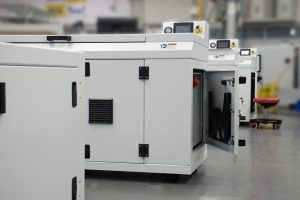
Experience:
PEKO has spent over 50 years in the contract manufacturing industry and has had experience working with many high-tech industries to help build a variety of complex equipment. With this past experience in mind, we now have processes and backup plans in place, in case of the inevitable, to ensure a smooth manufacturing cycle for our OEMs.
Facilities:
PEKO operates in over 375,000 square feet of air-conditioned manufacturing space between eight facilities. We offer prospective customers access to an interactive, 360-degree virtual tour of its key facilities so that you can outsource your project build to us with the confidence and reassurance that you need.
Equipment:
Our inventory of over 100 machines is extensive, allowing for advanced CNC machining, sheet metal fabrication, welding, engineering, and more.
Location:
All operations take place within PEKO’s manufacturing campus in Rochester, NY, allowing for easy review of project status and complete control across each and every step.
Capabilities:
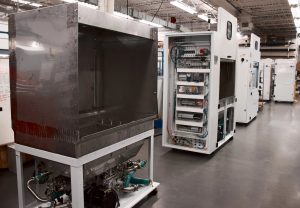
A turnkey contract manufacturer like PEKO is going to be willing and able to manage hundreds or thousands of parts, as well as all aspects of the supply chain, quality, production, assembly, electrical integration, and shipping.
Quality Control:
Not only has PEKO mastered many projects across an array of rigorous industries, but we have also obtained a few certifications along the way to ensure that our service offerings are open to a wide variety of customers.
Cost:
PEKO already possesses the knowledge and expertise needed to manufacture your custom machinery, in addition to having all the appropriate capital equipment to do so. Additionally, we can leverage our comprehensive network of existing suppliers to help you get the best overall price and take advantage of economies of scale.
With great partnerships and a clear understanding of goals, bringing a new machine product line to market can be tremendously rewarding.
PEKO’s engineers are consistently working on a number of different aspects for a variety of customers, to address methods to optimize designs, reduce costs, improve efficiencies, and ensure the long-term success of the program.
If you need any guidance in this area, you can download PEKO’s free new product development self-assessment guide to help you assess your current situation and determine if you could benefit from outsourcing your new machinery to a custom machine builder!
